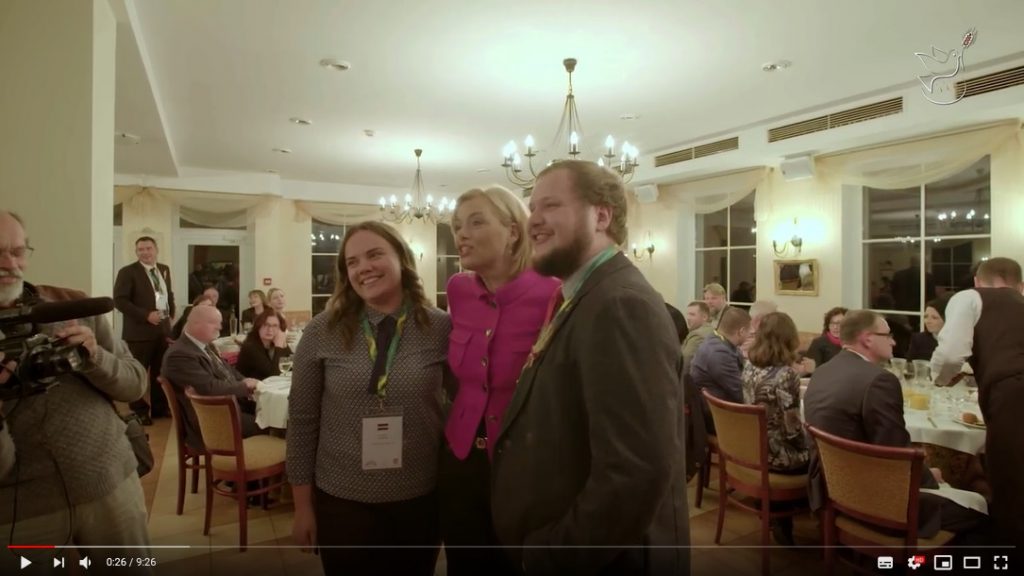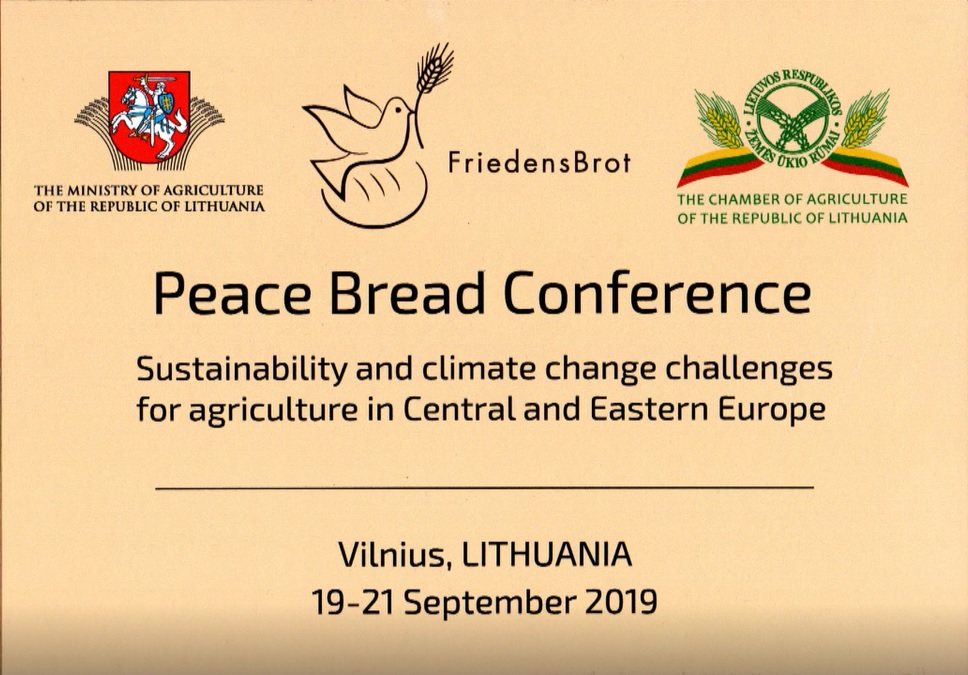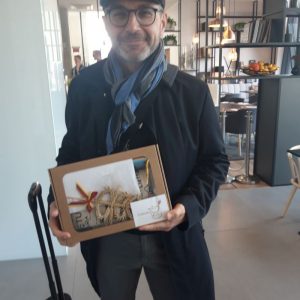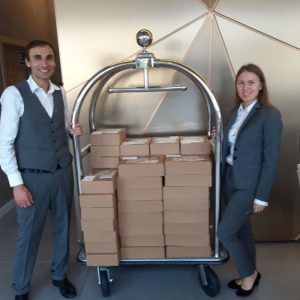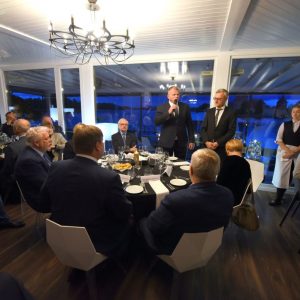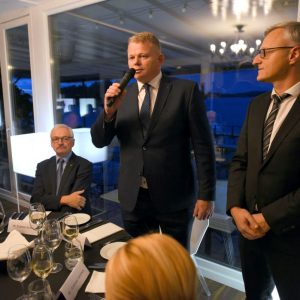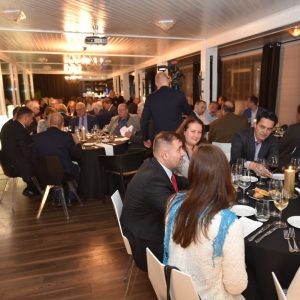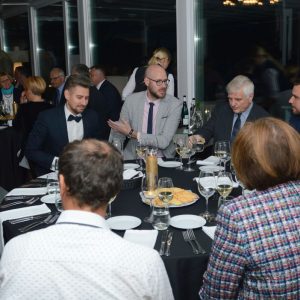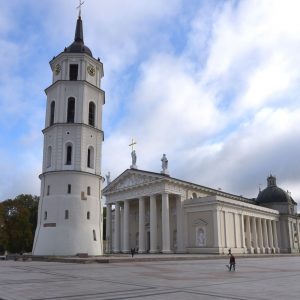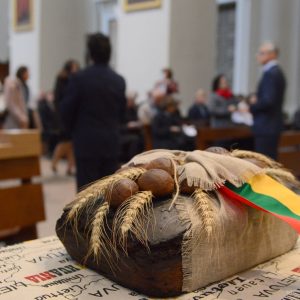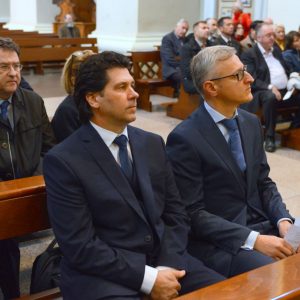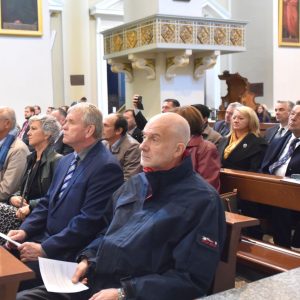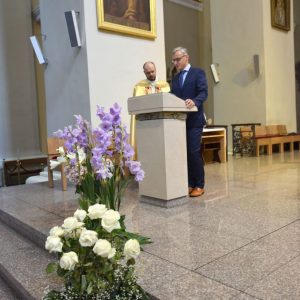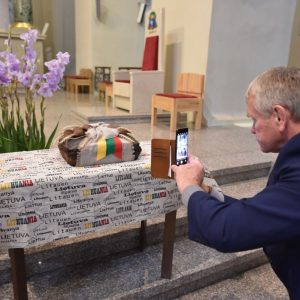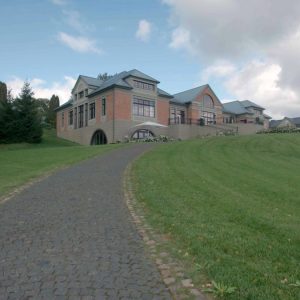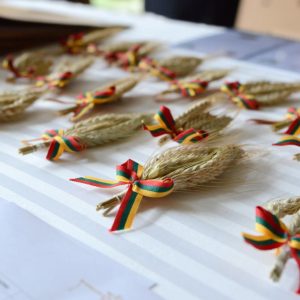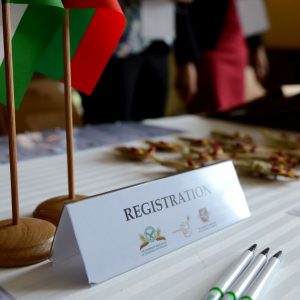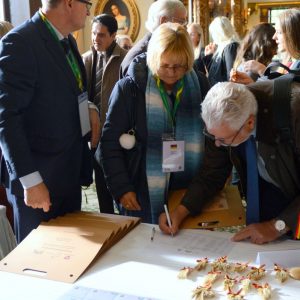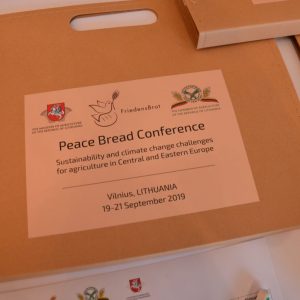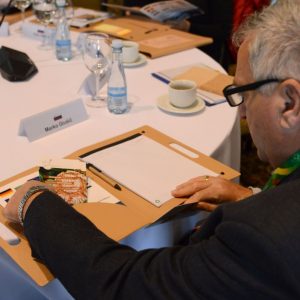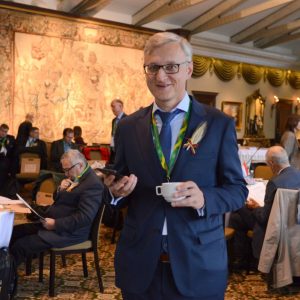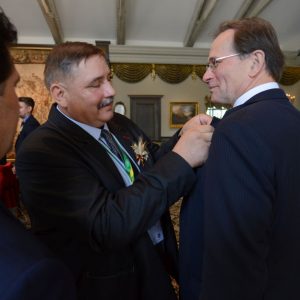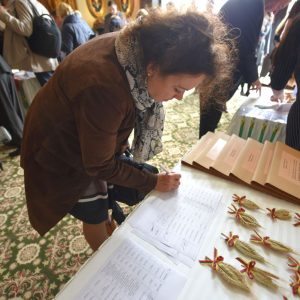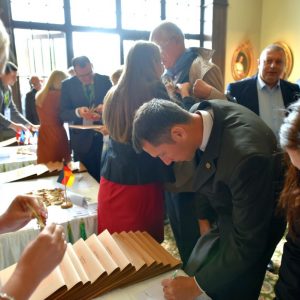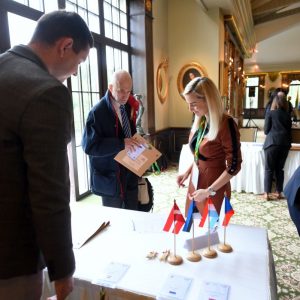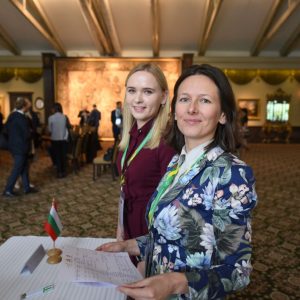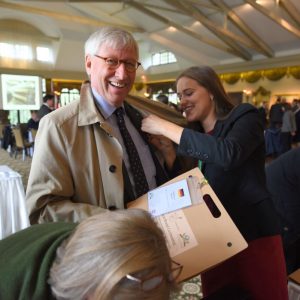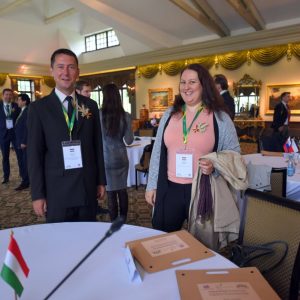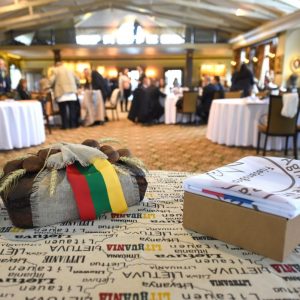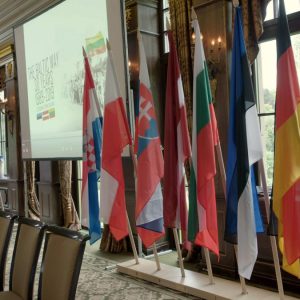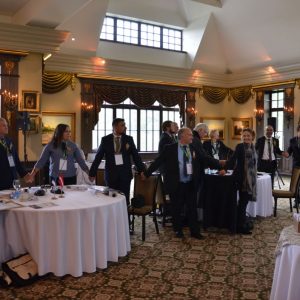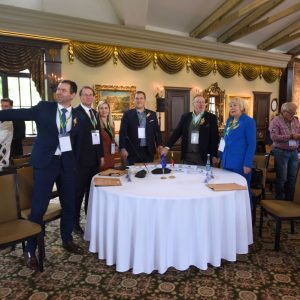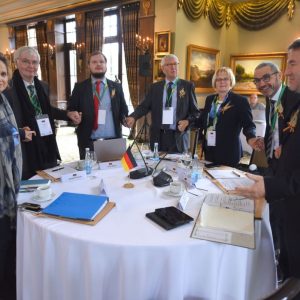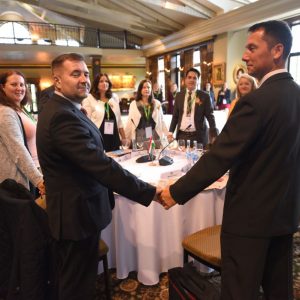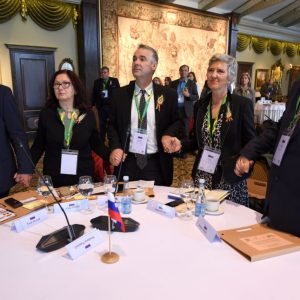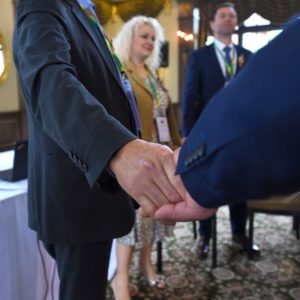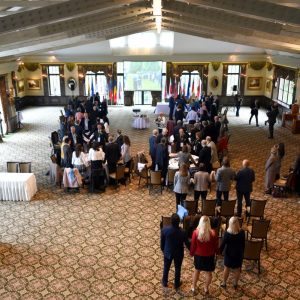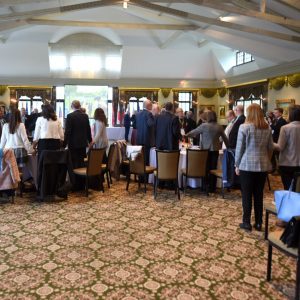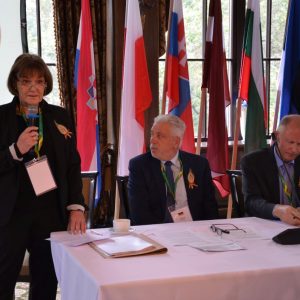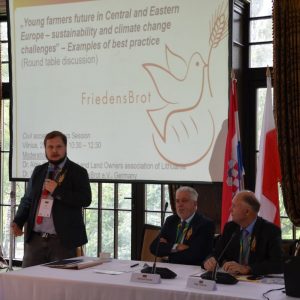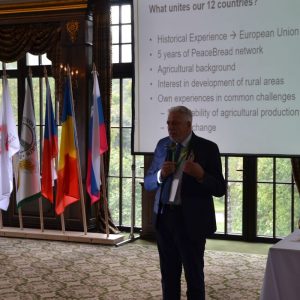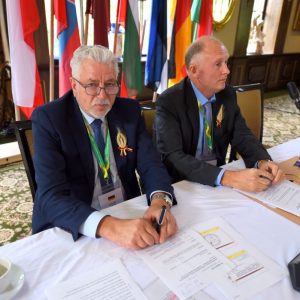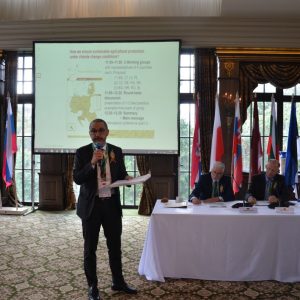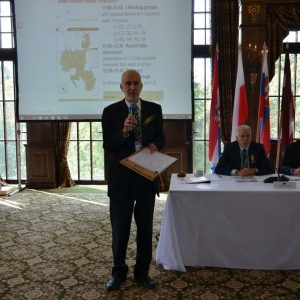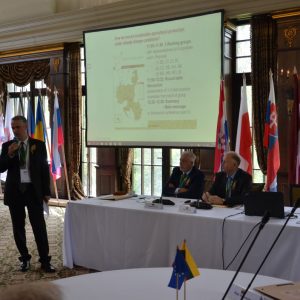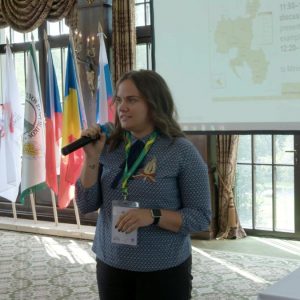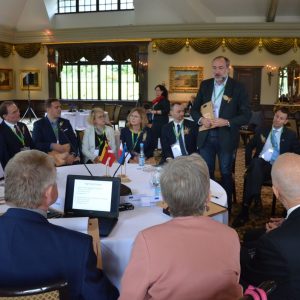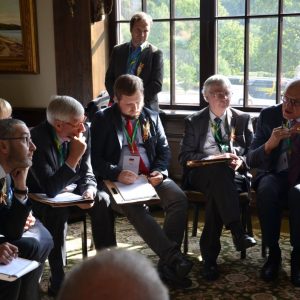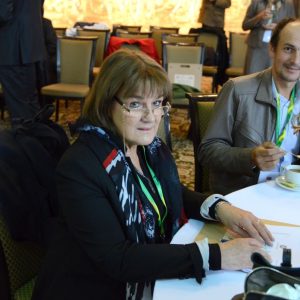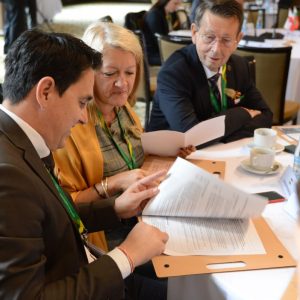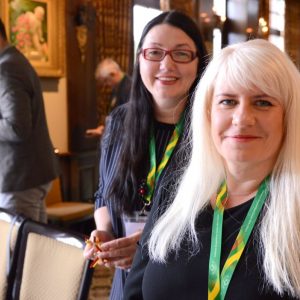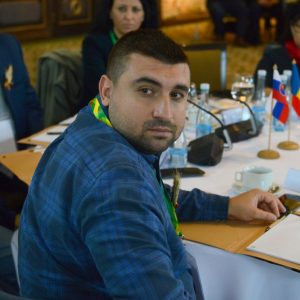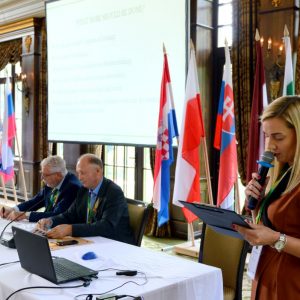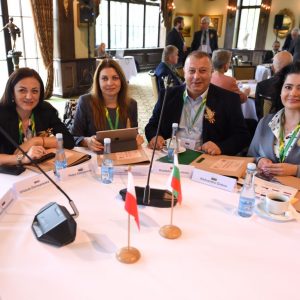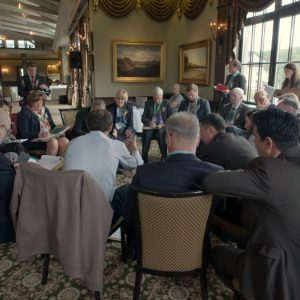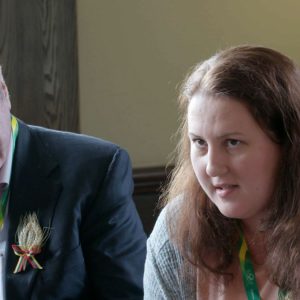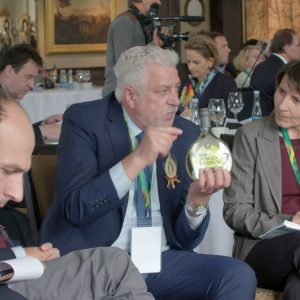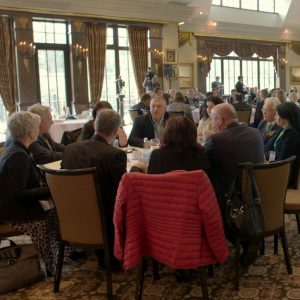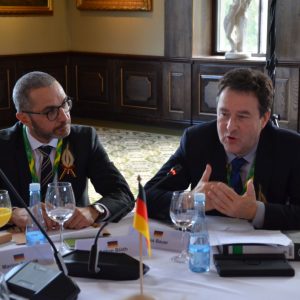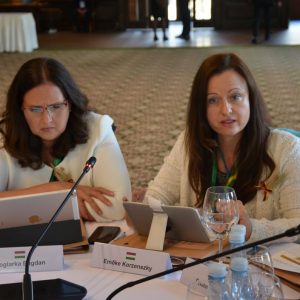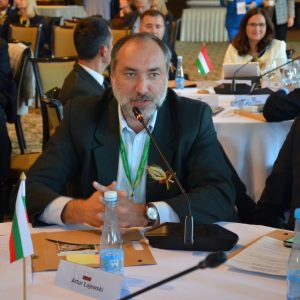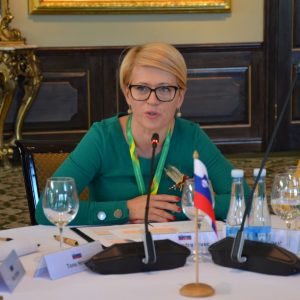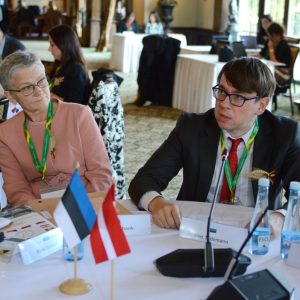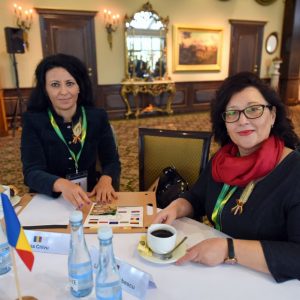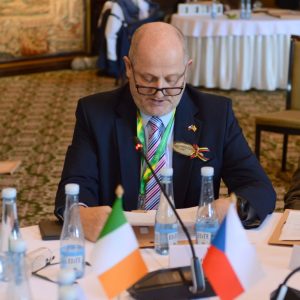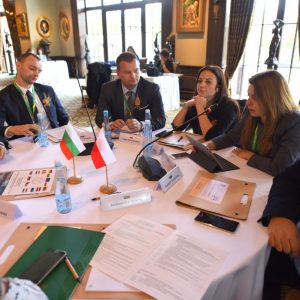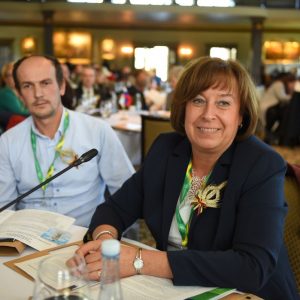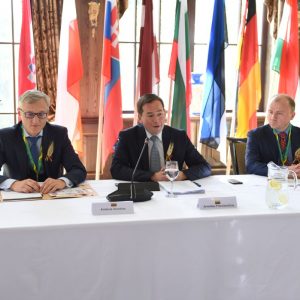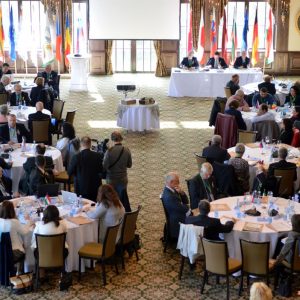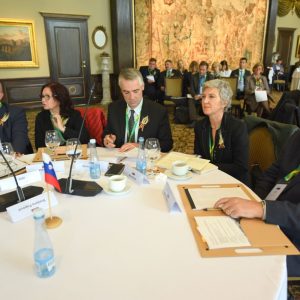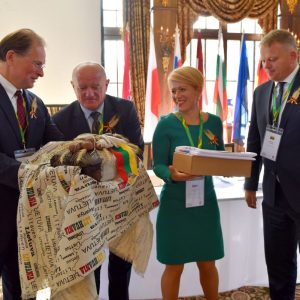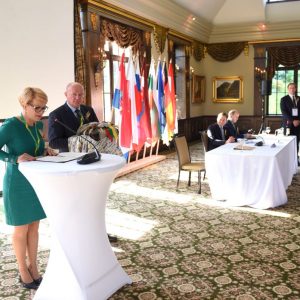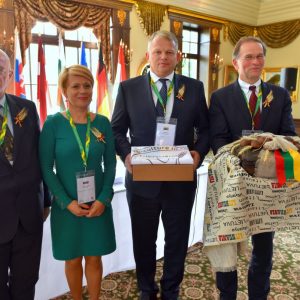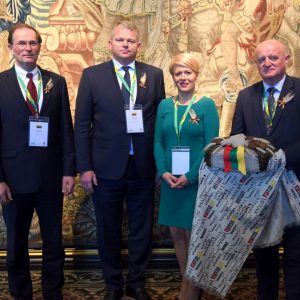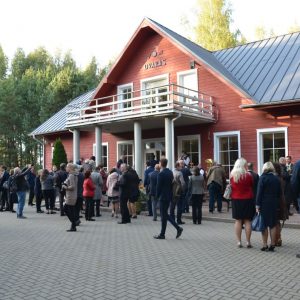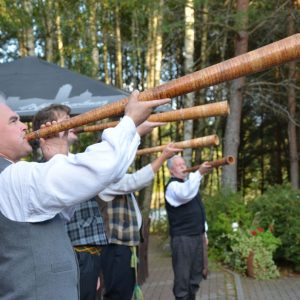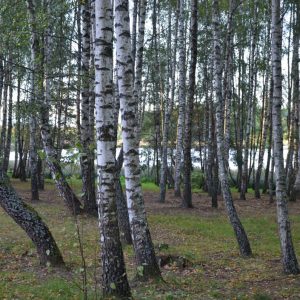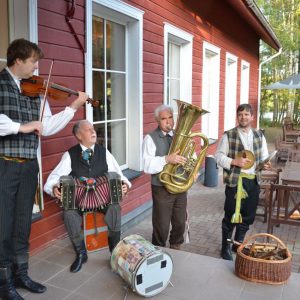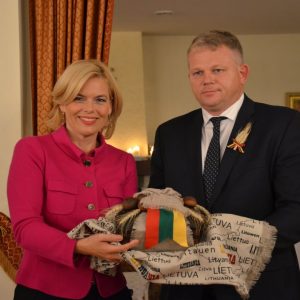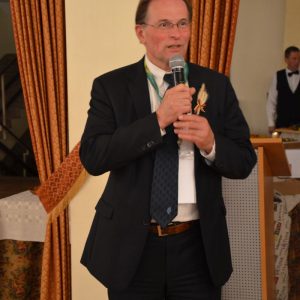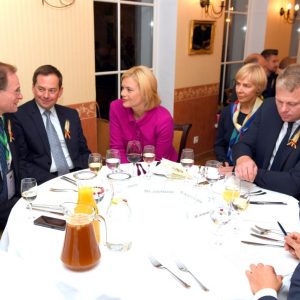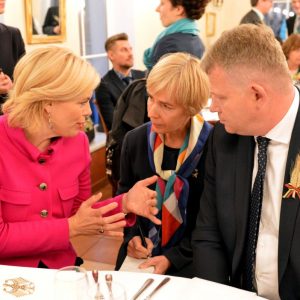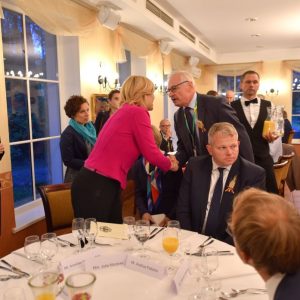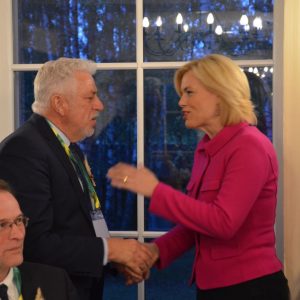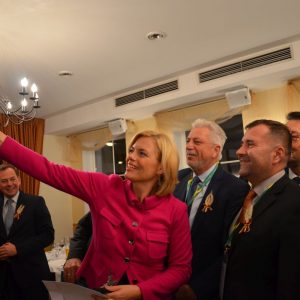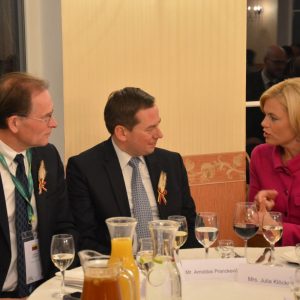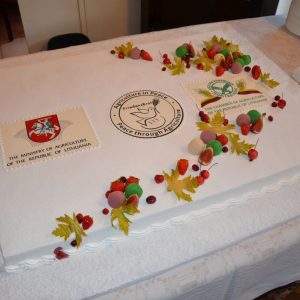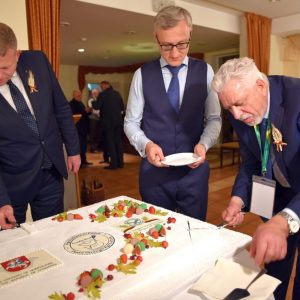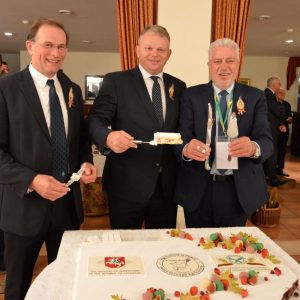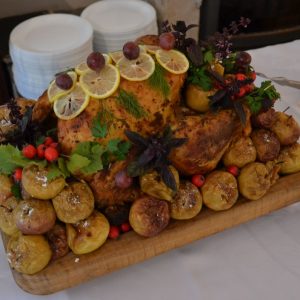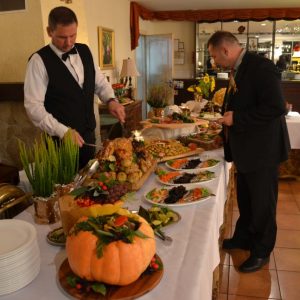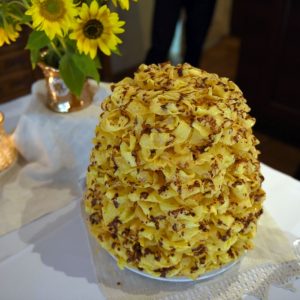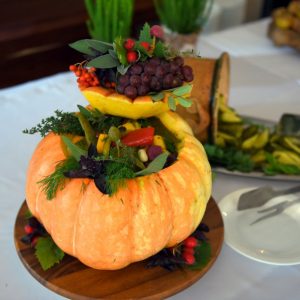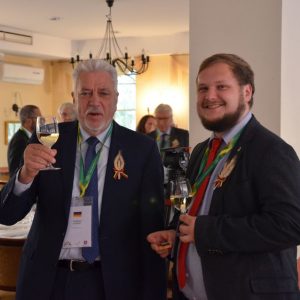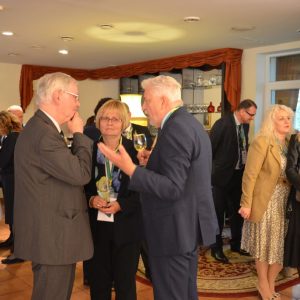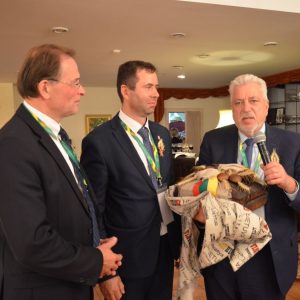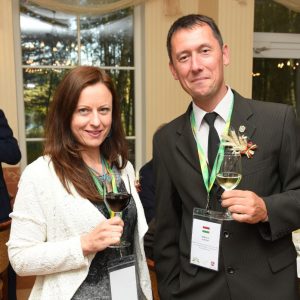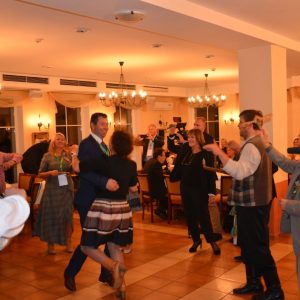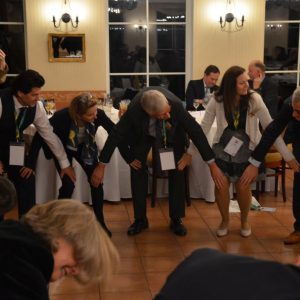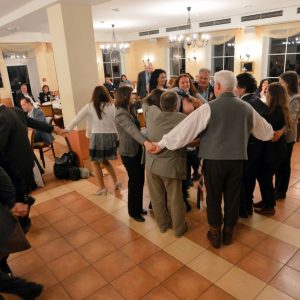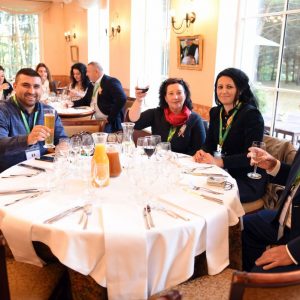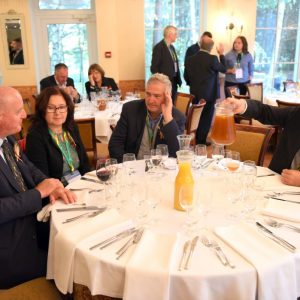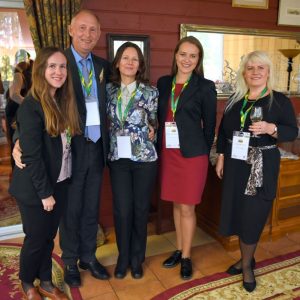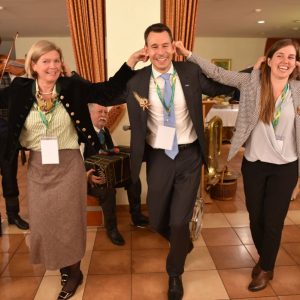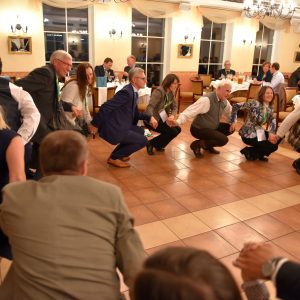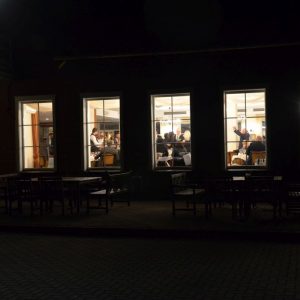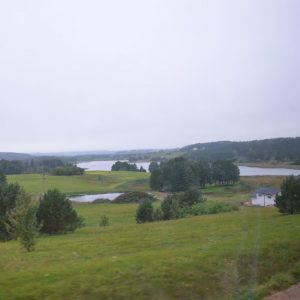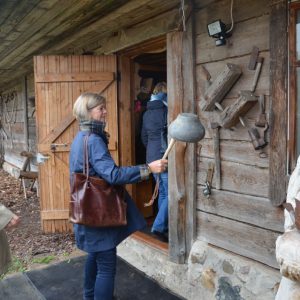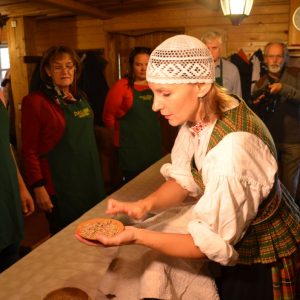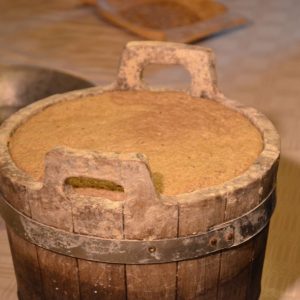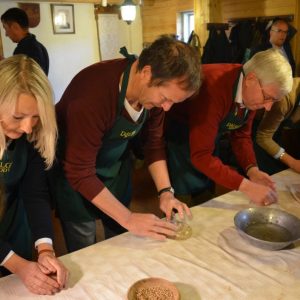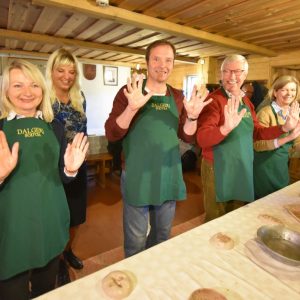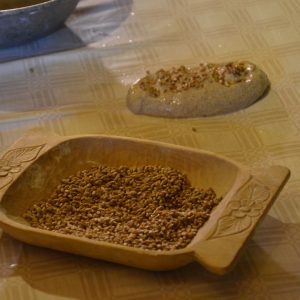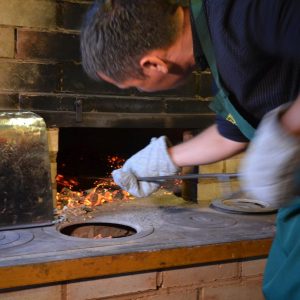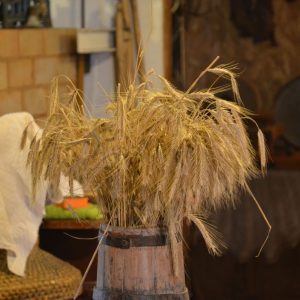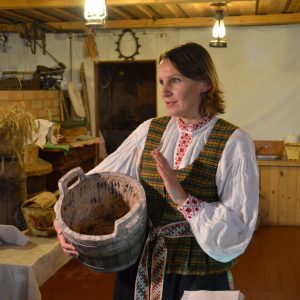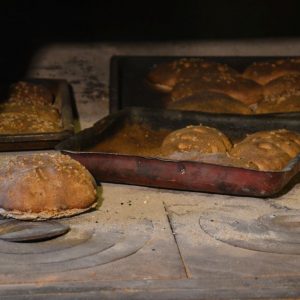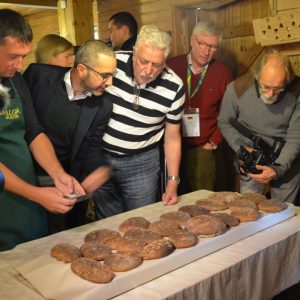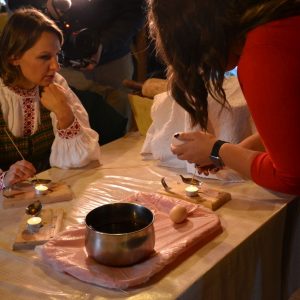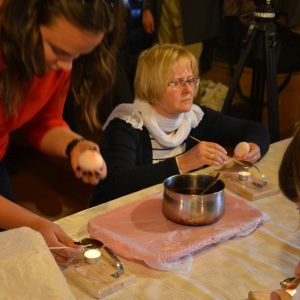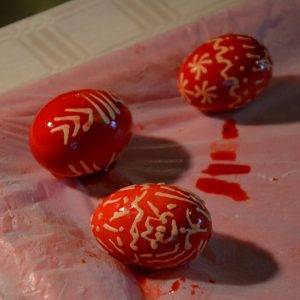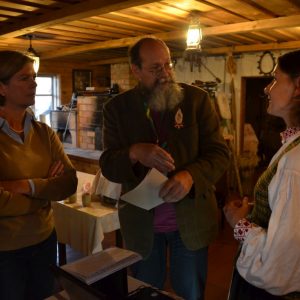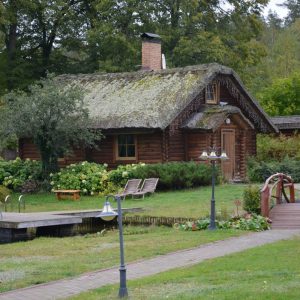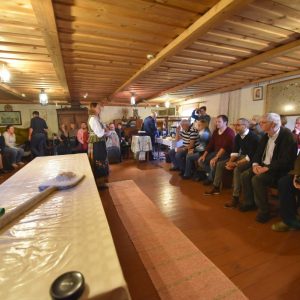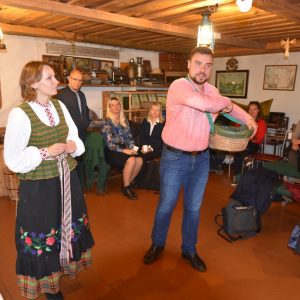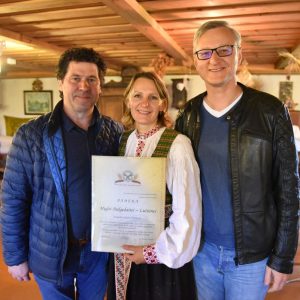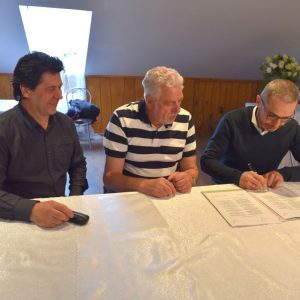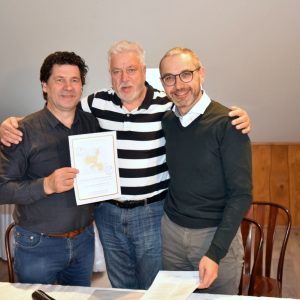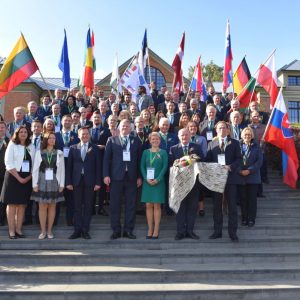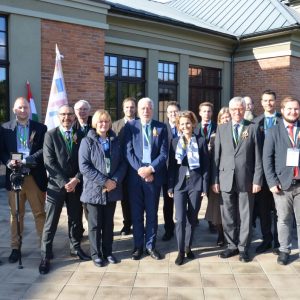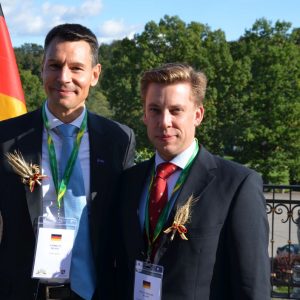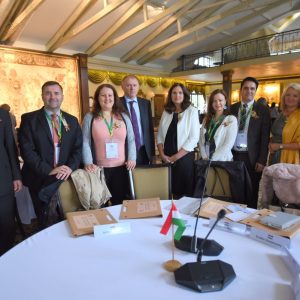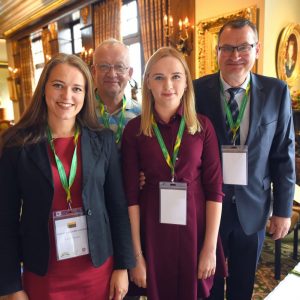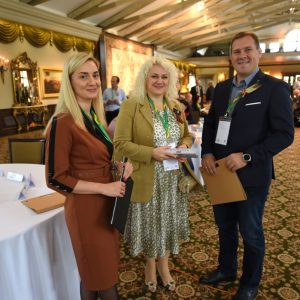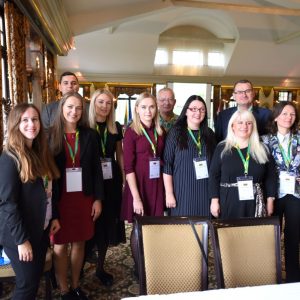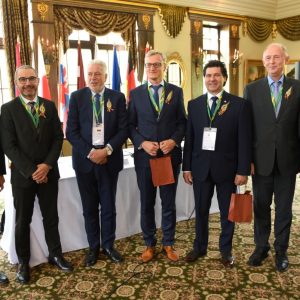Annual conference
Annual conference
„Sustainability and Climate Change Challenges for Agriculture in Central and Eastern Europe”
6th European Annual Conference „Peace and Agriculture“ in Vilnius, Lithuania on September 19th – 21st 2019
September 19th 2019
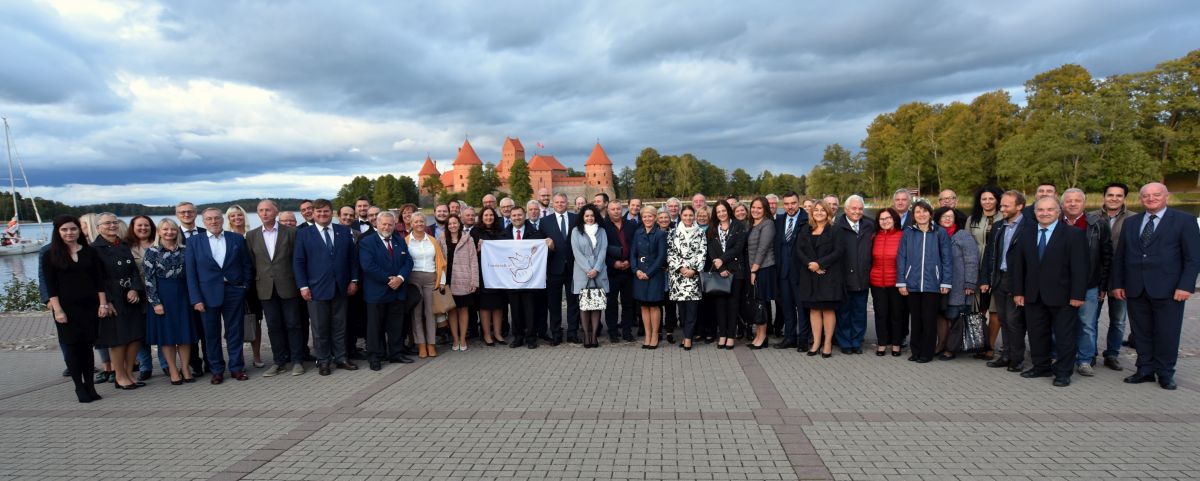
During a warm welcome with bread as a surprise gift at the Courtyard by Mariott Vilnius City Center hotel at the invitation of the Lithuanian Ministry for Food and Agriculture and the Chamber of Agriculture of the Lithuanian Republic more than 70 participants arrived at the conference venue.
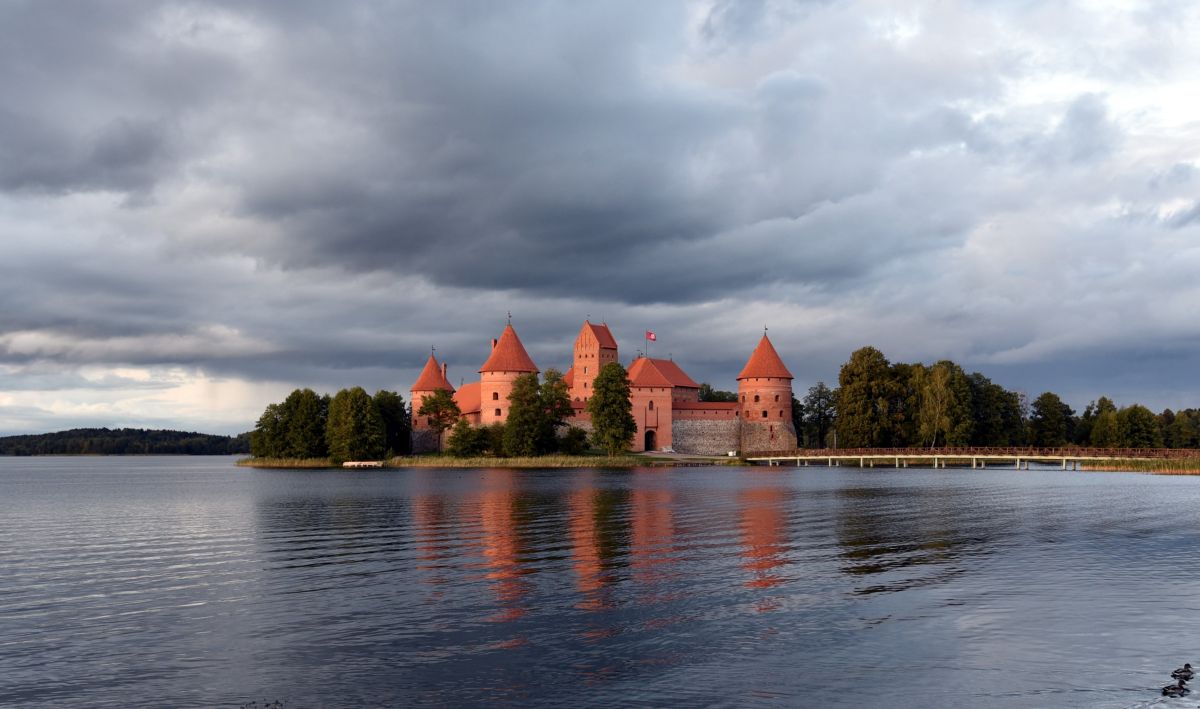
The Lithuanian Minister for Agriculture Andrius Palionis and the President of the Chamber of Agriculture, Arūnas Svitojus, invited to a welcome dinner at the conference center on the picturesquely situated island of Trakai. Minister Palionis welcomes the participants. Old acquaintances from the PeaceBread network exchanged greetings and ideas. Newcomers under the participants quickly joined in the conversations.
September 20th 2019
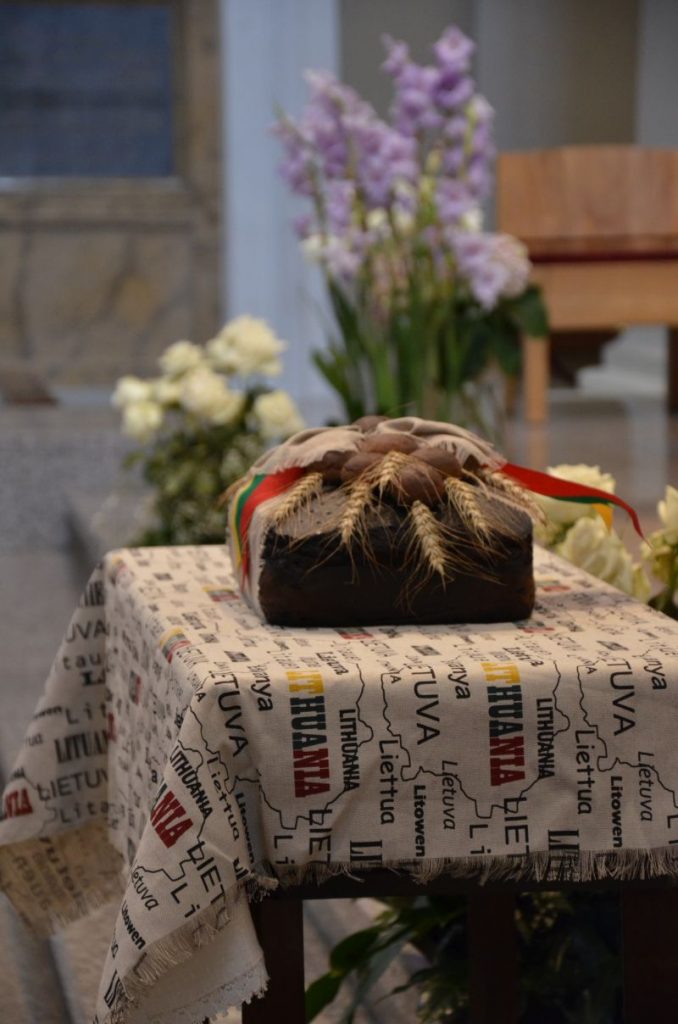
In the early morning the path first lead to the PeaceBread ceremony at the Cathedral of St. Stanislav and St. Vladislav in Vilnius.
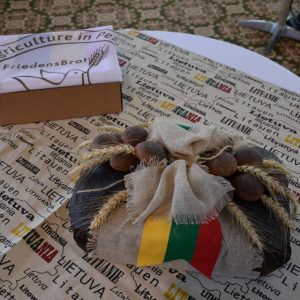
For the main part of the conference the hosts chose the historic mill “Belmontas” in Vilnius as a venue. Every detail – from pins to the microphones, from flags to the conference folders – were thoughtfully arranged and professionally prepared.
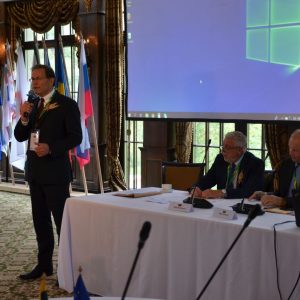
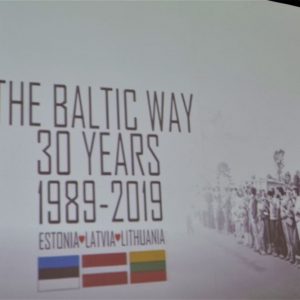
Dr. Arūnas Svitojus welcomes the participants with an opening statement and gave an introduction into the topic.
Joining their hands the participants commemorated the “Baltic Way” on August 23rd 1989, die human chain from Vilnius in Lithuania via Riga in Latvia to Tallinn in Estonia – one of the symbolic acts that led to the collapse of the Soviet Union and the independence of the three Baltic States that are now united in the European Union.
The traditionally two-part annual conference of the PeaceBread network started this year for the first time with the workshop for the civil-society participants. As the titel oft he workshop the Lithuanian hosts chose „Young Farmers Future in Central and Eastern Europe – Sustainability and Climate Change Challenges” – Examples of best practice.
Josiane Willems (European Economic and Social Committee, EESC) and Lukas Stede (German Federation of Rural Youth) delivered welcome addresses. The moderators for the mid-morning Dr. Gibfried Schenk (FriedensBrot e.V.) and Dr. Algis Gaižutis (Lithuanian Association of Forest Owners) introduced into the schedule of the workshop.
Lukas Stede gave examples of concrete actions of the german Rural Youth like the reafforestation program and nationwide flower strips for the protection of bees and other insects. The following discussion took up some of his questions: “What can farmers do against climate change and how can they achieve a sustainable management to produce food products for a growing world population and in the end earn enough to make a living for their family? How can we secure the future of coming generations without driving a wedge between our countries that might divide our societies even further? How can we bring the urban and the rural population together and contribute to a better understanding between their different realities?“
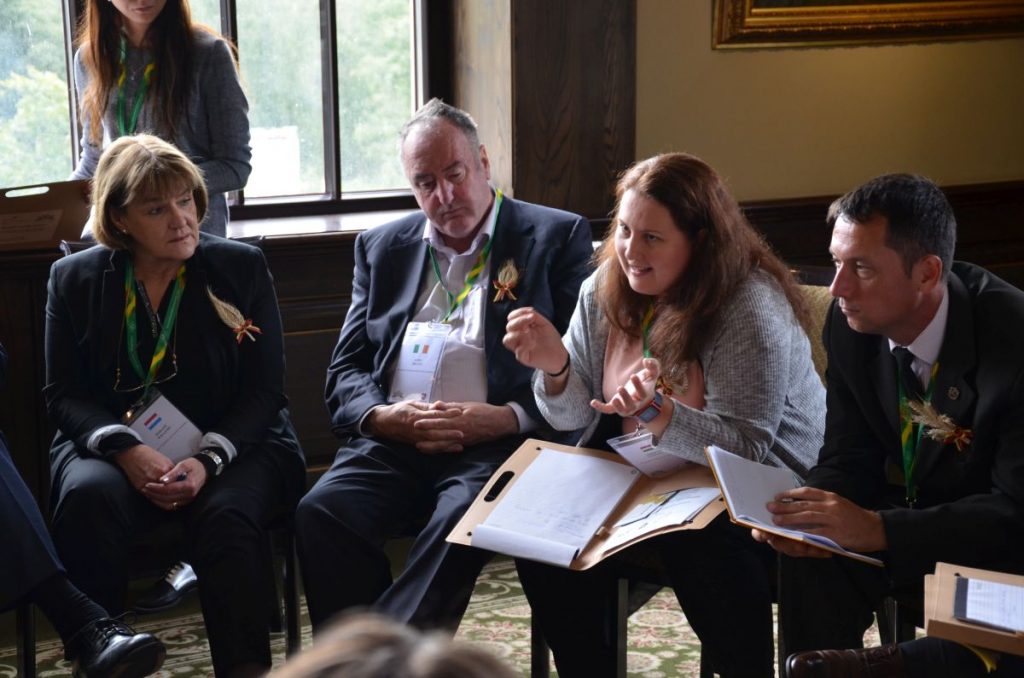
Very lively discussion in three regional working groups (Group North: Estonia, Latvia, Lithuania, Poland / Group Central: Czech Republic, Germany, Hungary, Slovakia / Group South: Bulgaria, Romania, Slovenia) followed. Anton Blöth (Germany), Ruve Šank (Estonia) und Marko Hrastelj (Slovenia) presented the results. Ruve Šank called to mind the preparations for the International Year of Rye and introduced Läsma Lapina, a young Lithuanian farmer. She spoke of the launch of her Instagram account a couple of months ago. With this account she tries to show city dwellers that agriculture is not only a business for men but also very interesting for women. She sees herself as some sort of an influencer for the cause of agriculture. Anton Blöth highlighted the importance of new and interesting business models. Marko Hrastel calls for better a better access to farmland for young farmers.
Summary of working groups:
Group North:
Estonia, Latvia, Lithuania, Poland
Group Central:
Germany, Slovakia, Czech Republic, Hungary
Group South:
Bulgaria, Romania, Slovenia
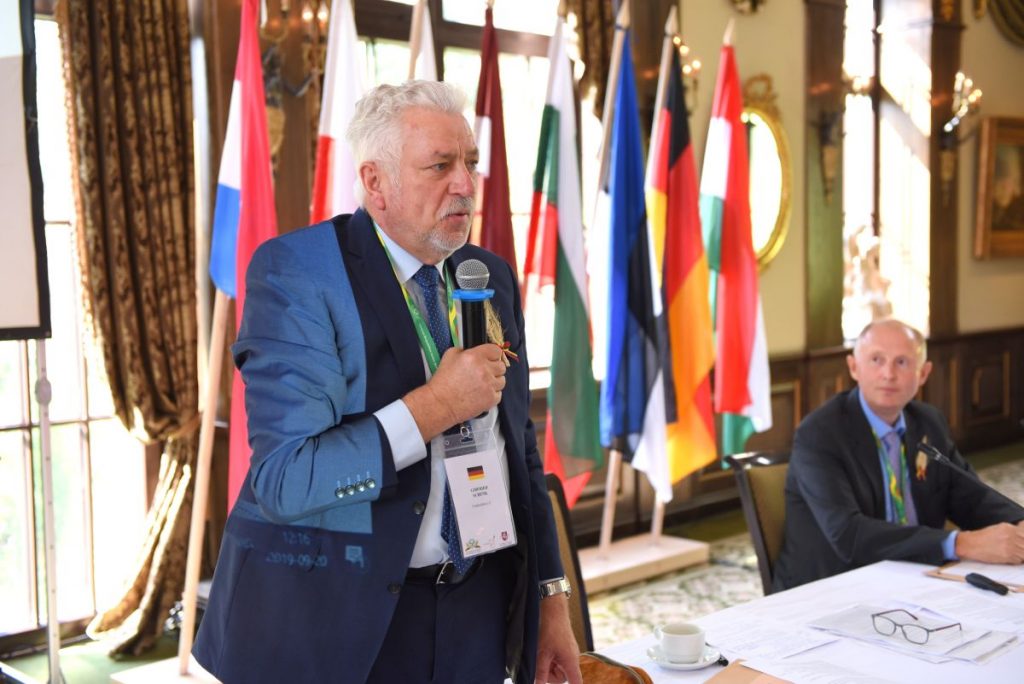
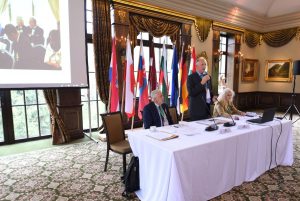
Dr. Gaižutis and Dr. Schenk then summarized the four focus topics for a viable agriculture in the future, that came up in the workshops:
(1) Scientific research and the use of new technologies,
(2) Education and the appeal to young people,
(3) Communication towards professionals and the society as well as
(4) Long-term oriented agriculture based on soil protection.
The civil-society participants wanted to put particular attention to agriculture that appeals to young people, is modern, sustainable and has a high regard in society. The concept AgriCOOLture fits very well for this: Agriculture is cool!
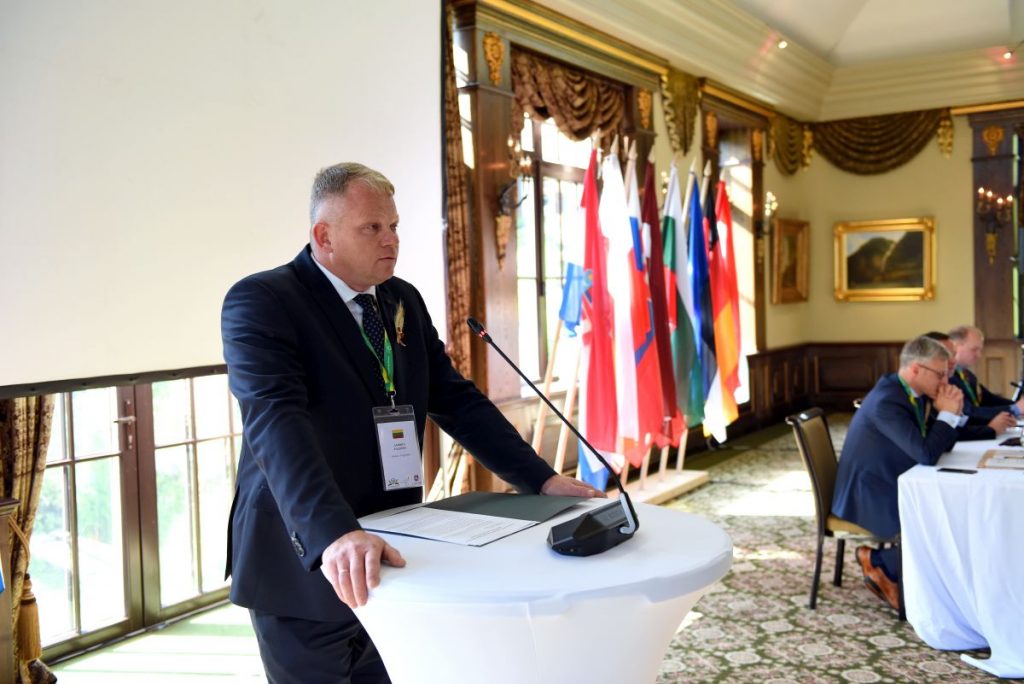
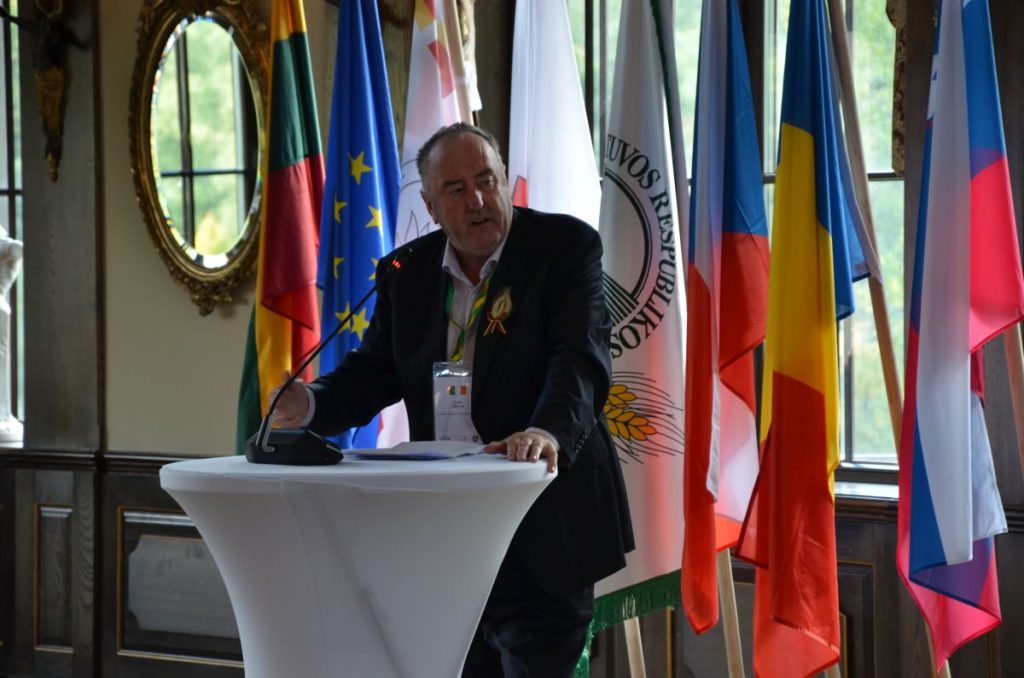
The second part of the conference started with the presentation of Minister of the host country Andrius Palionis and the welcome address of the EESC presented by John Bryan. High-ranking representatives of the Ministries for Agriculture of the partner countries subsequently highlighted the complexity of challenges for the European agriculture of the future and gave interesting insights into their own view on the redesigning of the Common Agricultural Policy for the European Union.
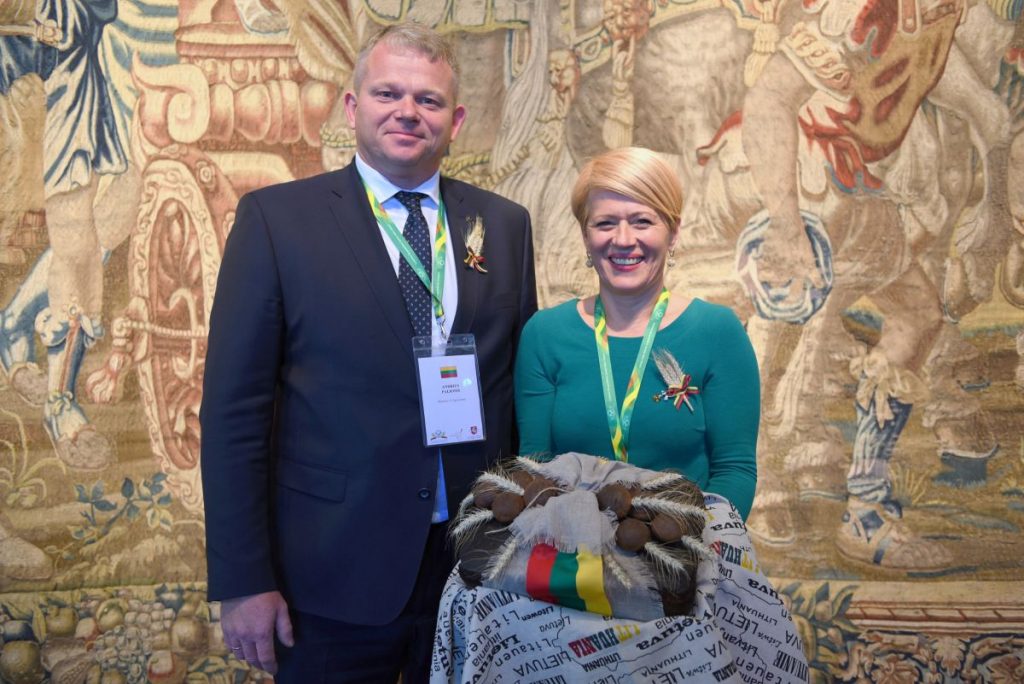
Minister Palionis used the opportunity and passed the symbolic “baton”, the Lithuanian PeaceBread, for the holding of the annual conference 2020 to the Slovenian Minister for Agriculture Alexandra Pivec. Minister Pivec and Tone Hrovat, the Director of the GRM NOVO MESTO – CENTER for Biotechnology and Tourism, the civil- society partner of the international PeaceBread network cordially invite everybody.
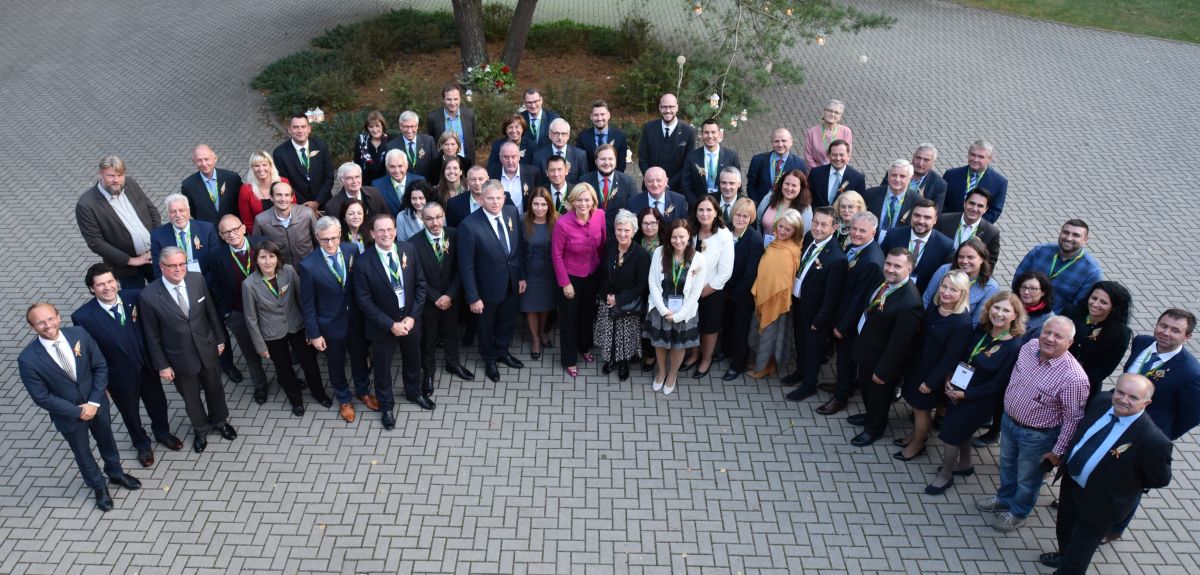
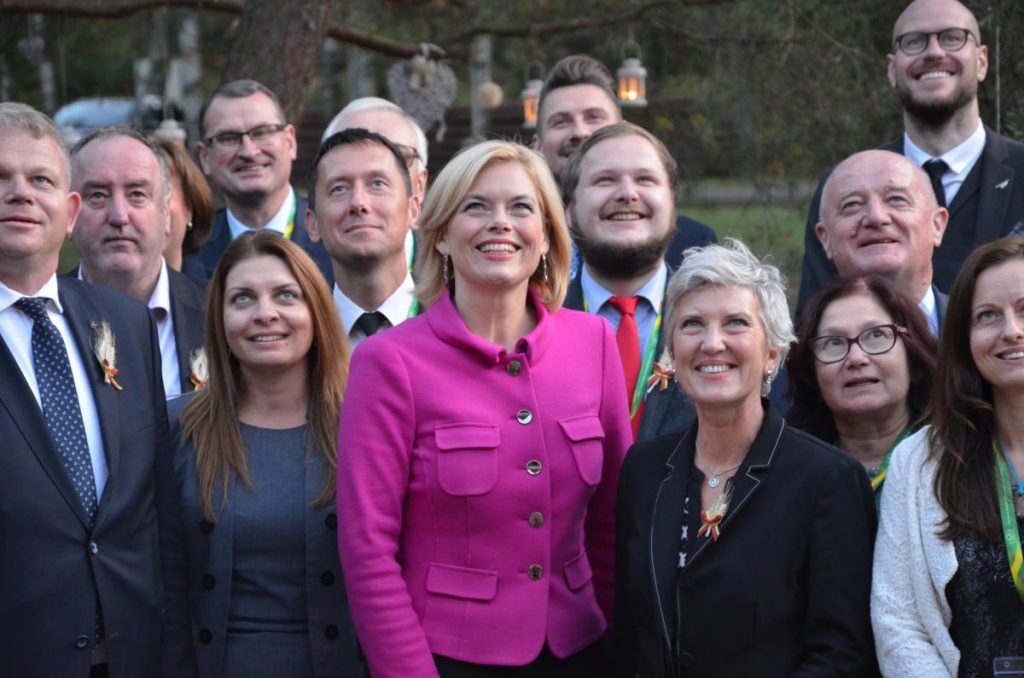
The main part of the conference ended with a festive evening reception at conference- and leisure center Kernaves Bajoryne. Traditional Lithuanian music is welcoming the guests.
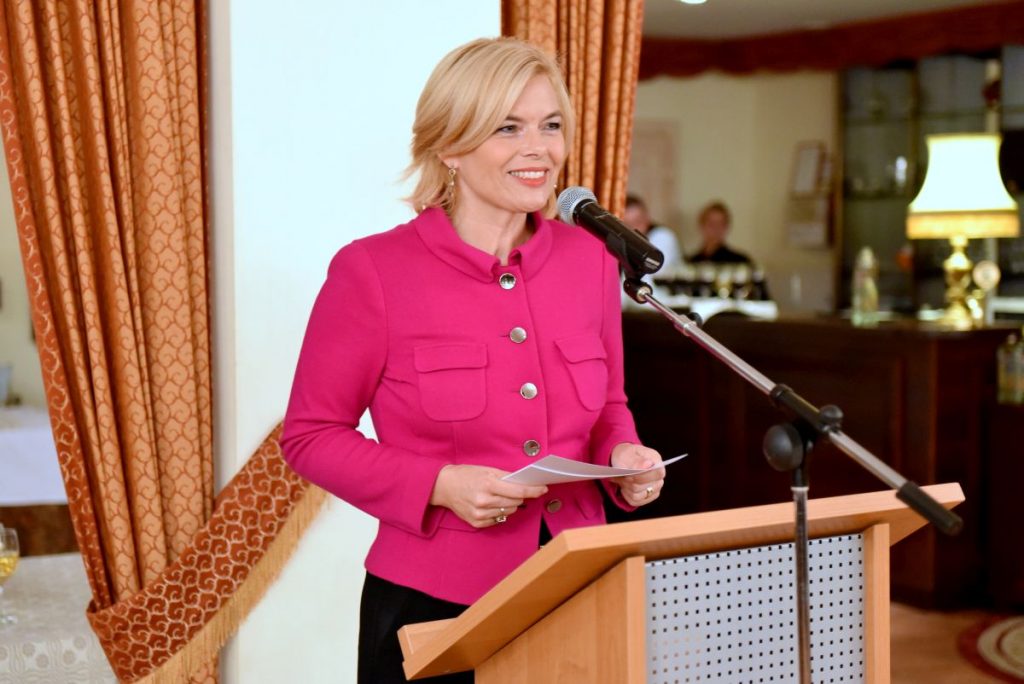
The patron of the international PeaceBread project, the German Federal Minister for Food and Agriculture Julia Klöckner, honoured the initiative as a frame for “learning with and about each other and to communicate with each other albeit the differences.”Especially this year with the 30th anniversary of the Fall of the Berlin Wall the PeaceBread initiative “is a strong symbol for the union between our countries”, the Minister stressed.
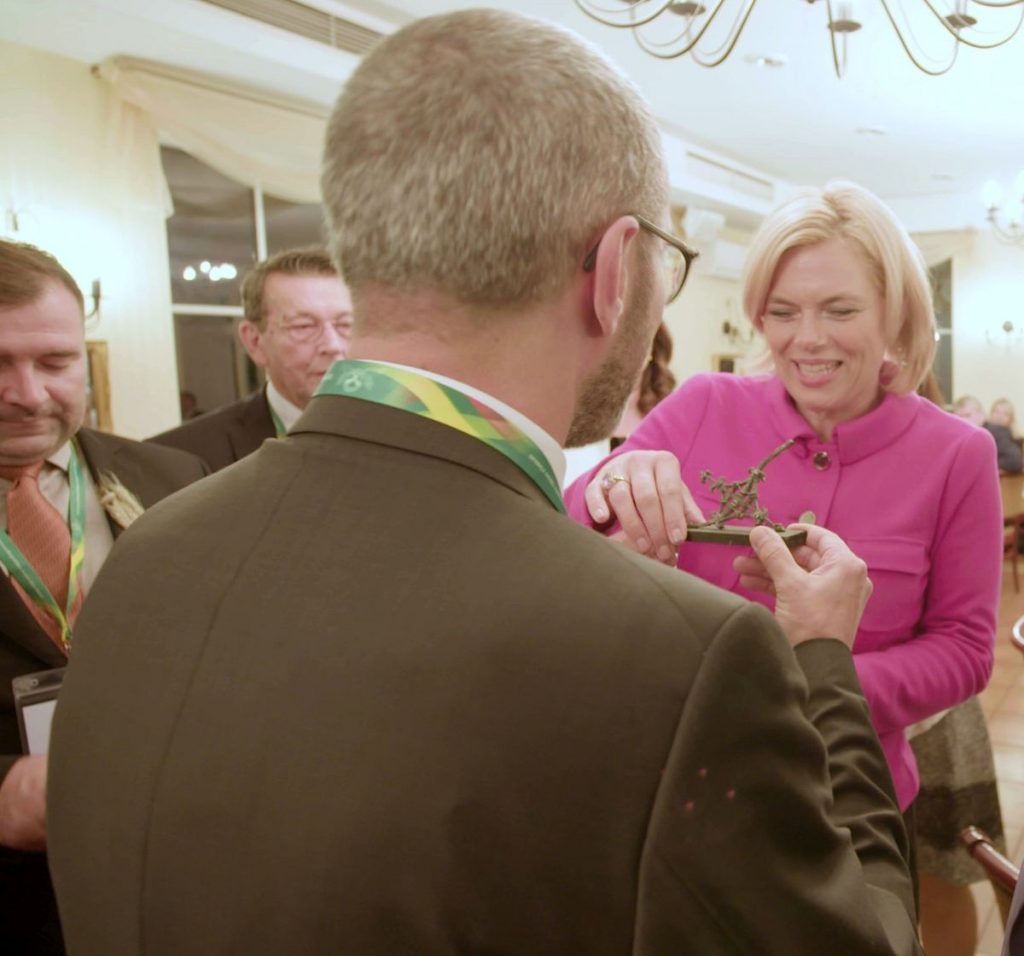
The PeaceBread Association presents to the patron of the international “Peace and Agriculture” network a model of the former dome cross of the Chirch of Reconciliation on Bernauer Street by the Wall, made by Armenian artist Chavarch Khatchatrian, The chirch was blasted in 1985, the site that is today known as the Berlin Wall Memorial.
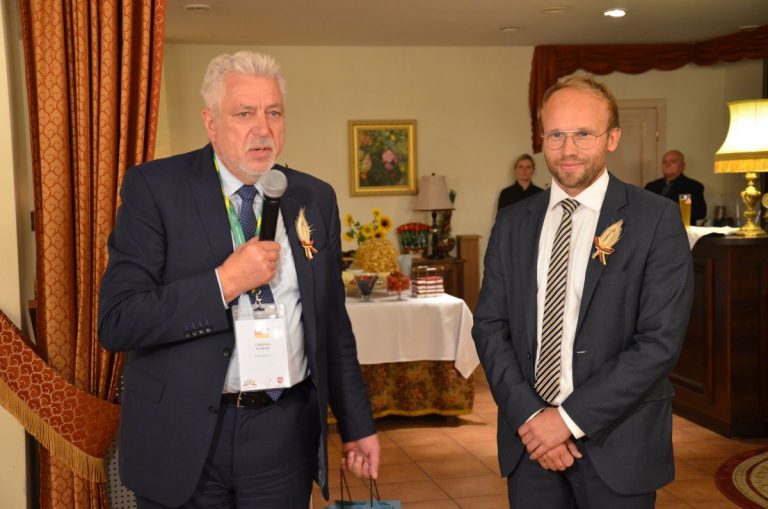
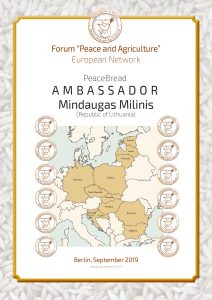
In attendance of the patron Mindaugas Milinis, agricultural diplomat from the Lithuanian Embassy in Berlin is being honoured as an PeaceBread Ambassador of 2019.
A PeaceBread- cake is being cut. Great talks, a wonderful menu, dancing and high spirits all around are concluding the evening.
September 21th 2019
In the mid-morning before the return journey a large part of the civil-society participants followed an invitation from the Lithuanian hosts to the agro-tourism business „Dalgedų sodyba“. The history of bread baking, of cultivating flax, of painting easter eggs including a hearty lunch gave a great insight into the life of the Lithuanian rural population of past centuries. The highlight was baking one’s own bread.
The Chairman of the PeaceBread Association Blöth, Managing Director Dr. Schenk and the Deputy Chairman of the Lithuanian Chamber of Agriculture, Sigitas Dimaitis used the opportunity to sign a cooperation agreement.
Wonderful group photos here at the end as a thank you-gift for the fantastic Lithuanian hosts!
Photos: Lithuanian Chamber of Agriculture, Julian-Philipp Haase, Gibfried Schenk

